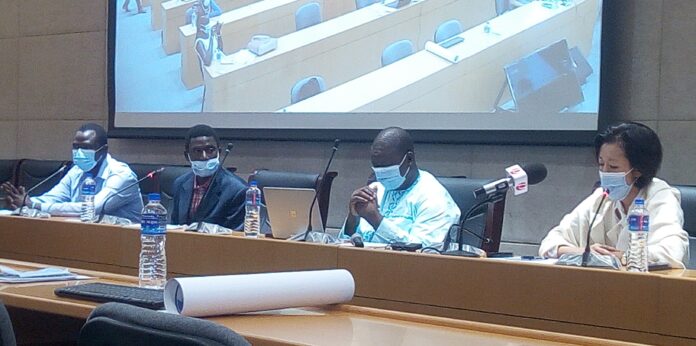By Ndey Sowe
The International Organization for Migration (IOM) in collaboration with the Gambia Bureau of Statistics has launched the Displacement Tracking Matrix (DTM) and establishment of Flow Monitoring Points (FMP) in the Gambia.
The DTM/ FMP is a data tool that aims to track migration and mobility patterns in the Gambia. The Displacement Tracking Matrix (DTM) is a system to track and monitor displacement and population mobility.
DTM is designed to regularly and systematically capture process and disseminate information to provide a better understanding of the movements and evolving needs of displaced populations, whether on site or en route.
The launching ceremony was held on Thursday, 12th November, 2020 at the Sir Dawda Kairaba Jawara International Conference Center in Kololi.
Fumiko Nagano, IOM Chief of Mission said the initiative is part of the research component of the UN Peace-Building Fund (PBF) supported project, “strengthening Sustainable and Holistic Reintegration of Returnees in The Gambia,” which is implemented by IOM, together with the International Trade Center (ITC) and the UN Population Fund (UNFPA).
She added that the lack of data on migration in the Gambia is an issue that requires immediate action, this she said has prompted the IOM and partners to set up the DTM/ FMP for data collection in the Gambia.
“Lack of data and understanding on migration and mobility dynamics leads to misrepresentation as to the scale and effects of irregular migration,” she noted.
She was quick to add that when accurate data is not found, public discourse and narratives on migration and in particular, irregular migration, can be misleading, and could lead to the criminalization, marginalization and demonization of migrant communities.
Nyakassi MB Sanyang, the Statistician General of the Gambia Bureau of Statistics highlighted that the DTM/ FMP is a system conceptualized in 2004 in Iraq and has since then been continuously refined and enhanced through years of operational experience in countries in both conflict and natural disaster settings.
He said: “the DTM is therefore a very important monitoring and assessment tool.” A comprehensive DTM includes information relevant to various humanitarian sectors such as water and sanitation, health, food and protection which is highly required by a broad range of humanitarian and development actors.”
He therefore thanked the IOM for the laudable initiative and hoped to collaborate more with them in their future activities.
The Global DTM support team is based in IOM headquarters in Geneva, working closely with regional focal points. Composed by experts with various technical and operational backgrounds, the team strives to provide support services for DTM implementation in the field worldwide.




















